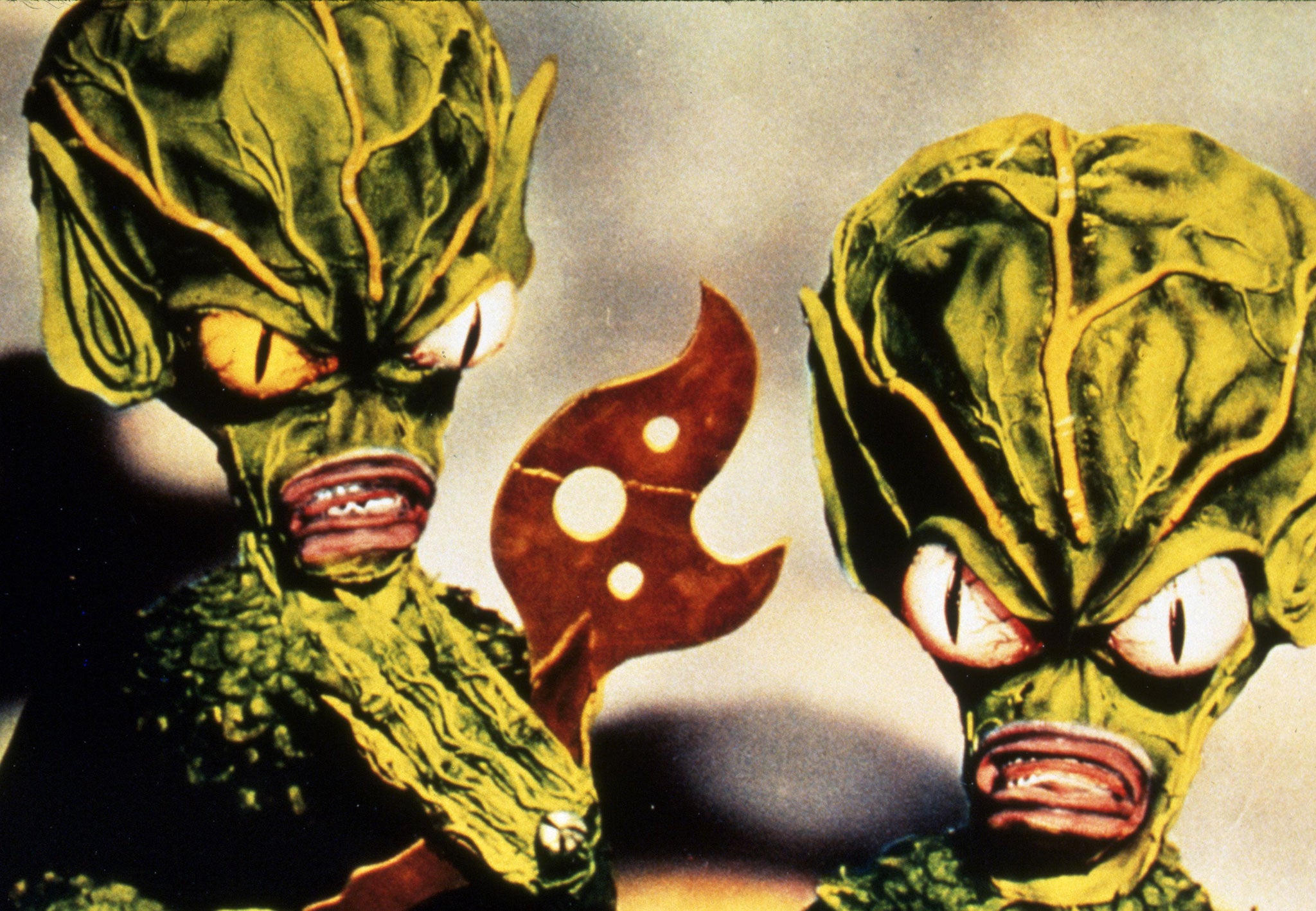Sci-fi and fantasy books round-up: Extra-terrestrials are joined by elves and goblins

Your support helps us to tell the story
From reproductive rights to climate change to Big Tech, The Independent is on the ground when the story is developing. Whether it's investigating the financials of Elon Musk's pro-Trump PAC or producing our latest documentary, 'The A Word', which shines a light on the American women fighting for reproductive rights, we know how important it is to parse out the facts from the messaging.
At such a critical moment in US history, we need reporters on the ground. Your donation allows us to keep sending journalists to speak to both sides of the story.
The Independent is trusted by Americans across the entire political spectrum. And unlike many other quality news outlets, we choose not to lock Americans out of our reporting and analysis with paywalls. We believe quality journalism should be available to everyone, paid for by those who can afford it.
Your support makes all the difference.There is a bookish war being fought, bloody and desperate. In the science fiction/fantasy genre, the latter part of that designation (ie, fantasy) reigns supreme.
While smart, science-based SF is still the purview of a select band of authors, armies of elves, magicians and goblins have long banished interplanetary voyages in terms of sales. There are, however, still writers such as Stephen Baxter with zero elf-quotients. He is one of the few still producing massive, fastidiously textured SF epics that engage the intelligence of the reader. Ideas come thick and fast, and an exhilarating sense of wonder is guaranteed. In the earlier Proxima, aeons-old alien artefacts proved to be gateways to instantaneous travel through interstellar space. In Ultima (Gollancz, £20), we are shown the ramifications of these newly opened vistas – not least, extra-terrestrials with designs on the human race. The very nature of the universe and the limitless possibilities of time are grist to Baxter's mill.
Epic in scale, too, are the novels of Paul McAuley, who has built a reputation as a purveyor of off-kilter metafictions that defy category. He's best at vividly realised alternative societies that refract the more arcane aspects of our own. Confluence – the Trilogy (Gollancz, £25) may well be the magnum opus of the award- winning author. Confluence itself is an attenuated artificial world populated by machines long beyond the control of any human entities. It is also the story of Yama, discovered as an infant in a boat on the world's Great River, but possessed as an adult of incomprehensible powers which will make him either a benign and influential figure on Confluence – or its greatest nemesis.
But let's not neglect fantasy. Alongside the banal stuff, some non-pareil writing is being produced today. And the field is not just the preserve of Tolkien-inspired writers such as George RR Martin; more subtle and intimate supernatural fantasy is being explored by several talented writers. With An English Ghost Story (Titan, £5.99), Kim Newman shows that he can't help himself – when he tackles a genre, he reinvents it. This time it's the haunted house novel, given a radical makeover that both references the past and looks to the future. A British family seeks an alternative to city living in the tranquil Somerset countryside. Initially, their new home, The Hollow, proves the perfect sylvan setting, but things begin to go insidiously wrong, and the new house gives every impression of being a sentient being, intent on the dysfunctional family's destruction. It would be criminal to say how Newman subverts the parameters of the genre here, but suffice it to say that tales of terrifying dwellings will never be the same again.
However, Newman's is not the only subversive riff on the haunted house motif out this month. Christopher Fowler has toiled for several years in the crime genre with his quirky Bryant and May novels, but he has made no secret of his love for the supernatural, and this predilection resurfaces, with unsettling results, in Nyctophobia (Solaris, £7.99), a characteristically atmospheric fantasy tale set in rural southern Spain. The setting here is Hyperion House, symmetrical but disturbing in that one half of the house remains perpetually dark while the other is always in light. The new owner, Callie Shaw, investigates the eldritch history of her purchase and makes a startling discovery in the under-visited servants' quarters at the rear of the house. As with the best supernatural stories, Fowler demonstrates that the medium – as well as chilling the blood – can be a repository for some truly elegant writing.
Join our commenting forum
Join thought-provoking conversations, follow other Independent readers and see their replies
Comments